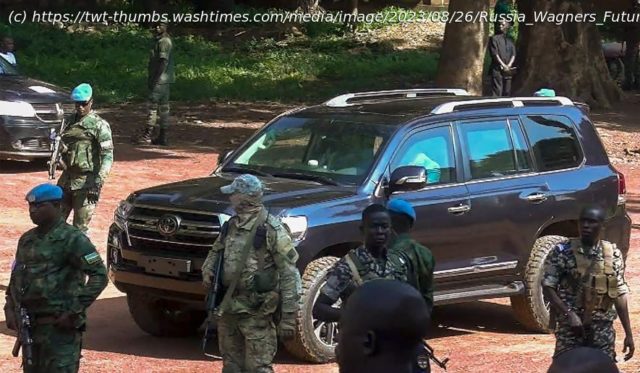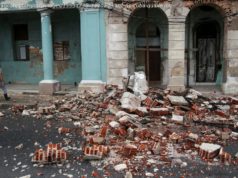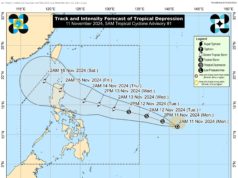The Wagner Group’s presence extends from the ancient battlegrounds of Syria to the deserts of sub-Saharan Africa, projecting the Kremlin’s global influence with mercenaries accused of using brutal force and profiting from seized mineral riches.
The Wagner Group’s presence extends from the ancient battlegrounds of Syria to the deserts of sub-Saharan Africa, projecting the Kremlin’s global influence with mercenaries accused of using brutal force and profiting from seized mineral riches.
But that was under Yevgeny Prigozhin, who in what may have been his final recruitment video, appeared in military fatigues and held an assault rifle from an unidentified dry and dusty plain as he boasted that Wagner was “making Russia even greater on all continents and Africa even more free.”
A private jet carrying Prigozhin and his top lieutenants crashed northwest of Moscow on Wednesday, two months after he led an armed rebellion that challenged the authority of Russian President Vladimir Putin. There is wide speculation that the mercenary leader, who is presumed dead, was targeted for assassination because of his uprising, although the Kremlin has denied involvement.
The crash has raised questions about the future of Prigozhin’s private army, which fought alongside Russian troops in Ukraine before his brief uprising against military leaders in Moscow.
Russian authorities have cited the need to await DNA test results to confirm Prigozhin’s death, but Putin expressed condolences after the jet fell from the sky. The Russian leader also has ordered Wagner fighters to sign an oath of allegiance to the Russian state, according to a decree published on the Kremlin’s website late Friday and effective immediately.
The order followed the Kremlin’s denial Friday of suggestions from Western officials and news media that the Wagner leader may have been killed on Putin’s orders.
In African countries where Wagner provided security against extremist organisations like al-Qaida and the Islamic State group, officials and commentators predicted Russia would likely maintain a presence, placing the mercenaries under new leadership.
Others, however, say Prigozhin built deep, personal connections that Moscow could find challenging to replace quickly.
Africa is vitally important to Russia – economically and politically.
This summer, Wagner helped secure a national referendum in the Central African Republic that cemented presidential power; it is a key partner for Mali’s army in battling armed rebels; and it contacted the military junta in Niger that wants its services following a coup.
Expanding ties and undercutting Western influence in Africa is a top priority as the Kremlin seeks new allies amid its war in Ukraine, where Wagner forces also helped win a key battle. Africa’s 54 nations are the largest voting bloc at the U.N., and Moscow has actively worked to rally their support for its invasion.
Linda Thomas-Greenfield, the U.S. ambassador to the U.N., said Friday that Wagner’s forces “are destabilizing, and we’ve encouraged countries in Africa to condemn their presence as well as their actions.”
The Republican Front in the Central African Republic, which is allied with the country’s ruling party, on Thursday reiterated its support for Russia and Wagner, saying they were “determined to fight alongside the African people as they struggle for self-determination.”
Wagner forces have served as personal bodyguards for President Faustin Archange Touadera, protecting the capital of Bangui from rebel threats and helping Touadera win the July 30 constitutional referendum that could extend his power indefinitely.
Home
United States
USA — Science Russia’s Wagner mercenaries face uncertainty after the presumed death of their leader...






